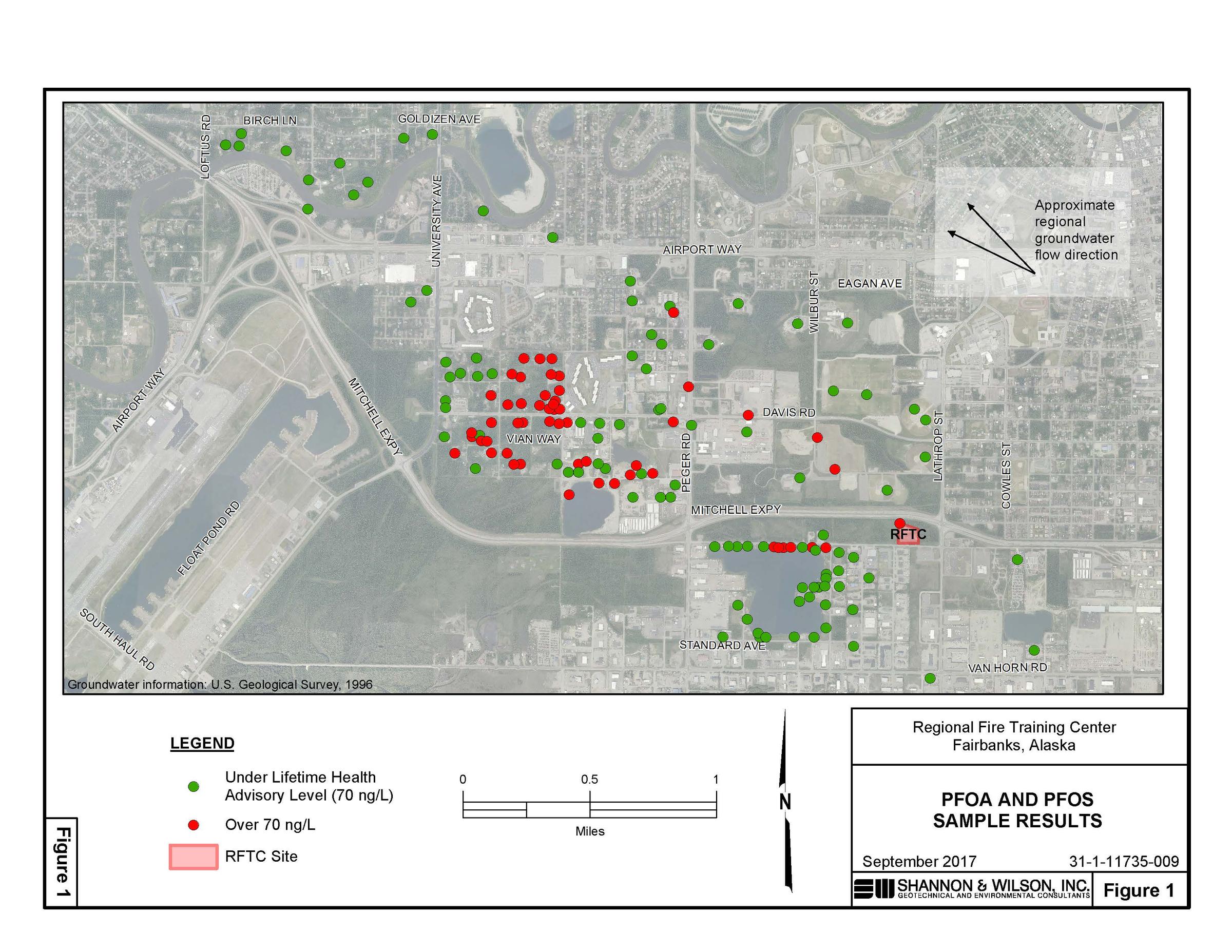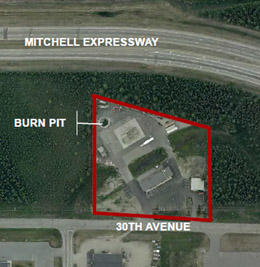
The Fairbanks City Council approved an ordinance Monday that’s intended to help provide drinking water for property owners in an area on the city’s south side who’ve lost the use of their wells due to groundwater contamination. Mayor Jim Matherly said it’s only the first step toward addressing the mounting costs of the contamination problem.
The council voted five-to-one to approve an amended ordinance that would provide a $2,500 stipend for two years to help pay water bills for property owners along 30th Avenue near the Regional Fire Training Center, who until recently had used their wells for drinking water.
Councilwoman Valerie Therrien said she voted no because she didn’t believe the ordinance would do enough to compensate those residents fairly for the loss of their drinking water supply.
“$2500 just isn’t enough to me,” Therrien said.
Therrien proposed paying the water bills for property owners who were most affected by the contamination for five years. The other council members rejected that motion over a concern it would cost the city too much, but agreed to her amendment to set the stipend at $2,500 – not up to $2,500.
Councilman Jerry Cleworth said the city had to draw a line somewhere.
“All I can say is it’s a compromise,” Cleworth said, “It probably won’t make very many people happy.”
The ordinance authorizes appropriating a hundred thousand dollars for the stipends. Councilman David Pruhs, who along with June Rogers cosponsored the ordinance, said the city in part modeled the stipend after the system North Pole set up earlier this year to help its residents deal with groundwater contamination caused by a chemical substance that leaked from an oil refinery in that city.
“Their stipend was $2,000 over a two-year period,” Pruhs said, “so we took their stipend and increased it.”

(ADEC graphic)
City Engineer Jackson Fox told Pruhs that since the Fairbanks officials learned about the contamination last year, the city has paid more than $3 million to survey the problem and clean up around the training facility. That amount also covered the cost of connecting 20 properties with the area water system operated by Golden Heart Utilities, and for providing drinking water to those and another 20 properties in the area that have yet to be hooked up.
“We could be looking at connecting another 25 or so homes next summer,” Fox said.
Fox told the council that each hookup will cost the city $35,000. Pruhs used that figure to estimate the total amount the city will have pay in the coming year to mitigate the problem.
“So we’re looking at basically 65 to 70 homes, not including a water stipend at $35,000, added on to the $3 million that we’ve already spent,” Pruhs said. “So we’re looking at (a total of) $5.5 million.”
Cleworth said that equates to about a mill-and-a-half increase in the city’s property tax. And he said that’s why the council must move quickly to limit payouts and other costs and to recover compensation from the manufacturer of the firefighting foam and other parties.
“We need to get something done by next May,” Cleworth said. “Or else the residents are going to be hit with a mill-and-a-half of property tax increase.”
Therrien asked City Attorney Paul Ewers whether he’s been notified of any legal claims filed against the city over the contamination issue.
“We don’t have any lawsuits that were filed,” Ewers said. “We’ve had basically claims inquiries, and (we’re) just starting those discussions.”
Mayor Jim Matherly told council member the city must talk with officials from other agencies that have used the training center about their possible liability. He said he talked about that with Gov. Bill Walker last week while he was in town.
Tim Ellis is a reporter at KUAC in Fairbanks.




